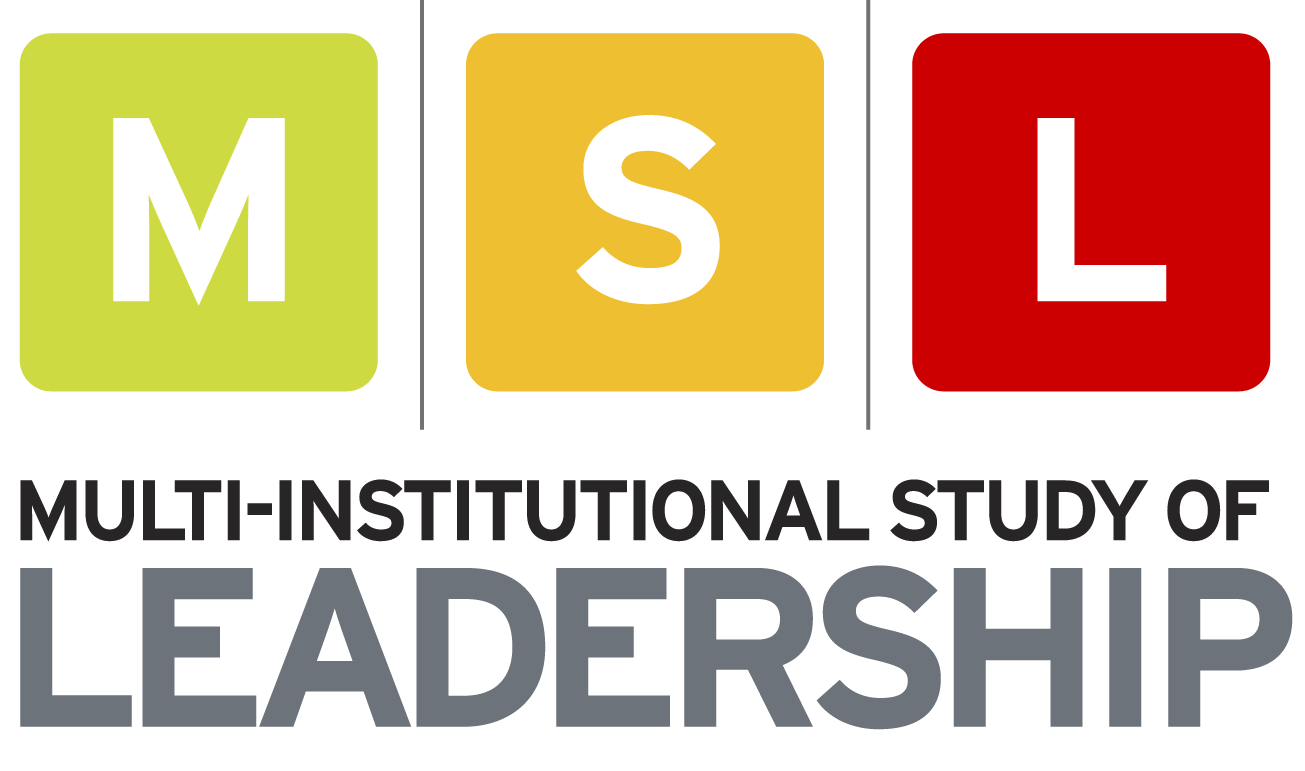Research is only as good as its design.
High psychometric rigor and clear conceptual and theoretical grounding supports the MSL. We generate data and results that are accurate, able to be applied with confidence, and add to the collective knowledge-base on leadership development. The study is a research service—and is used daily by researchers in publication, dissertations, and policy decisions alike.
Built upon Astin’s (1993) “input-environment-outcome” (I-E-O) college impact model
An adapted version of Astin’s (1993) “input-environment-outcome” (I-E-O) college impact model provides the conceptual framework for MSL. This involves collecting data about students’ knowledge and experiences prior to college as well as their experiences during college. These can be triangulated to then examine the influences of experiences during college on a variety of educational outcomes.
The model is adapted in two key ways:
The environment is extended to include variables representing experiences outside the college context (e.g., mentoring from employers, involvement in off-campus organizations).
The study collects data at a single point with pre-college data collected through retrospective questions. Students are asked to think back to before they started college to capture these data points. This approach is supported by prior research indicating it reduces response-shift-bias and yields accurate indications of student gains (Howard, 1980; Rohs, 2002; Rohs & Langone, 1997).


